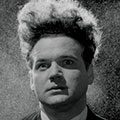I’ve seen Grizzly Man at least three or four times, and my opinion of it has changed quite a lot since my first viewing. Watching it through the lens of ethics and this studio has given me a new appreciation for Herzog’s complete disregard for the rules of documentary filmmaking.
I was surprised to hear people in our class discussion say that they felt Timothy Treadwell’s ex-girlfriend Jewel seemed inauthentic, like her emotions in the scene where Werner listens to Treadwell’s death tape were too “perfect” to be impromptu. But I don’t think people have taken into account that being on camera naturally compels people to look within themselves and really feel their emotions. Werner Herzog isn’t above playing tricks, but he’s always in search of some kind of authentic and genuine (if not literal) emotional truth. Jewel doesn’t seem to me like the kind of performer who could pull off a scene like that.
The coroner, on the other hand… that guy is fascinating. The scene in which he speaks directly to the camera about Treadwell’s death (and the recording of it) has always been my favourite scene in the whole film, and emblematic of what I love about Werner Herzog. The coroner seems so comfortable in front of the camera that I’ve always suspected he may be an amateur actor or something — maybe in local theatre — and Herzog decided that he was too compelling to just shoot in a standard talking-head style. The scene is so strangely shot, with the coroner awkwardly standing still for a few seconds before he begins speaking (like he was waiting for Werner to call “action”), and then staring directly into the camera across multiple different shots as he recounts the tale. It completely breaks every rule documentary filmmakers are supposed to follow, and yet it feels completely authentic in the final product. Perhaps I’m only saying this because I’ve seen a bunch of Herzog films and have been conditioned to expect anything from them, but the scene is just right.
I think some of my classmates can’t shake their expectation that documentaries should only show literal truth (“the Real”, as all our readings call it), which is interesting to me because they’re all much younger than me and have presumably always existed in a world in which filmmakers are radically experimenting with the rules of what a documentary is.
